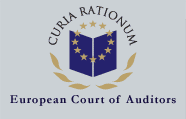A recession which has never gone, is coming back to the EU. The European Court of Auditors is warning again about inefficiencies. Italians stash a billion. Central banks do not believe one another.
The apparent calm of the situation in the second half of last year allowed us to spend a nice Christmas. PIIGS debt and the European banking sector worries were overcome for a while by OMT, LTRO, EFSF and ESM. But it does not change the fact that the European economy is trudging like a lame mare. The latest numbers show that in 2012 its German oppressor grew only 0,7 %. With the record low sales of cars and total industrial production gradually pointing down, a Europe-wide recession becomes once again likely, even six years after the start of the crisis.
How to face the recession? I recommend trying a career as a Member of the European Parliament. Each one of the 754 MPs costs taxpayers 2 170 000 euro per annum. Naturally, it does not include the bribes, for example, Austrian MEP Ernst Strasser’s fee was 100 000 euro per year.
Even worse than ineffective MPs are the inefficient investments that come out of their decisions. The European Court of Auditors, which regularly disturbs the Eurocrats’ days suggesting their inefficiency, issued two other reports. In the first one, they examined the effectiveness of investments in energy efficiency of buildings. The Evaluation of “Necessary assessments and even analysis of potential energy savings relative to investment were not made in any of the projects that we examined,” does not sound very flattering. The return time on some investment is prognosed to be 150 years; hopefully, those houses will last for such a long time. In the second one, they looked at the costs of European Development Fund, to the highways in Africa program. Over the years 1995-2011, we paid more than seven billion euros for it. The auditors came to a conclusion that the investment was “less successful than expected.” African countries have other priorities than expensive highway maintenance and after a decade and a half the highways fell in serious disrepair.
Similarly, the European Anti-Fraud Office (OLAF) offers a figure to think about. Over the last 10 years, 4421 suspicious cases dealing with European money worth totally more than one billion euros were found only in Italy. Would it not be easier to count those that were not suspicious?
But it is the legal flows of money that are the worst, not the illegal ones. It was finally confirmed that ESM will be an official umbilical cord between taxpayers and banks. To learn how much the maintenance of the Eurosystem in its present form can cost you, see our updated Euro Bill. Investigation of the Spanish Central Bank, which is accused of ignoring suspicious deals of Spanish banks, will certainly not improve your mood.
Their neighbours, the Portuguese, decided to improve their fiscal situation with passport sale. European passport costs a million euros and, apparently, only rich Turks are interested. Even Turkish neighbours are dependent on various emergency solutions. Greek budget numbers for 2012 were slightly better than expected – no wonder after two technical defaults. This year, the unemployment is expected to rise to 27,3 %. Those who still have jobs, can look forward to more tax increases. Meanwhile, cold-hit Greeks plunder the already sparse forests. In 2012, the authorities withheld 12 000 tons of illegally felled wood, which led to 3 000 complaints. A desperate situation also leads to expressions of solidarity, even among old enemies. After the Greek border town Orestiada was forced to stop heating its public swimming pool, the local youth swim team began to travel to a neighboring Turkish city, which offered them free trainings. Hopefully, Turkey will not need to send humanitarian aid to the EU soon.
Naturally, Greeks are not satisfied with the situation. Although the demonstrations with hundreds of thousands of participants ceased, there is no peace in the country. Over the weekend, the country faced 17 arson attacks on the offices of political parties and several others on houses of journalists. Completed by Monday attack, in which unknown perpetrators sprinkled headquaters of the New Democracy with Kalashnikov burst, which also hit the office of the prime minister Samaras.
Moody’s knocked down the rating for Cyprus by three levels to Caa3 into the junk zone. The country is so hopelessly approaching a bailout and Merkel warns ahead: „Do not expect any special treatment!” On the other hand, the good boy of Europe – Finland – not only maintained its rating, but also changed the outlook from negative to stable. Nevertheless, Finland keeps reducing expenditures and raising taxes. At what ratio, we will see in March.
Germans decided to push forward their plans, specifically the Bundesbank. It decided to change its slogan from “trust but verify” to “do not trust” and in 2020 they want to withdraw part of the German gold deposited in central banks in the U.S. and Paris. They want to “build confidence” in the domestic economy with this “barbaric relic”. It seems that central banks are slowly losing confidence in one another. Luckily, the citizens still have it!
Finally, you can laugh at the problems that worry the European Court of Justice. Is it spread butter or butter spread that you spread on your bread? Should such product contain any butter? And how to write it properly in Finnish? Truly, top-paid judges and 22 translators had to work hard when they were solving this translation issue. Fortunately, they solved it and the European consumer does not experience any terrible shock when he buys butter spread instead of spread butter.
Lots of butter and no spread on semolina pudding wishes



